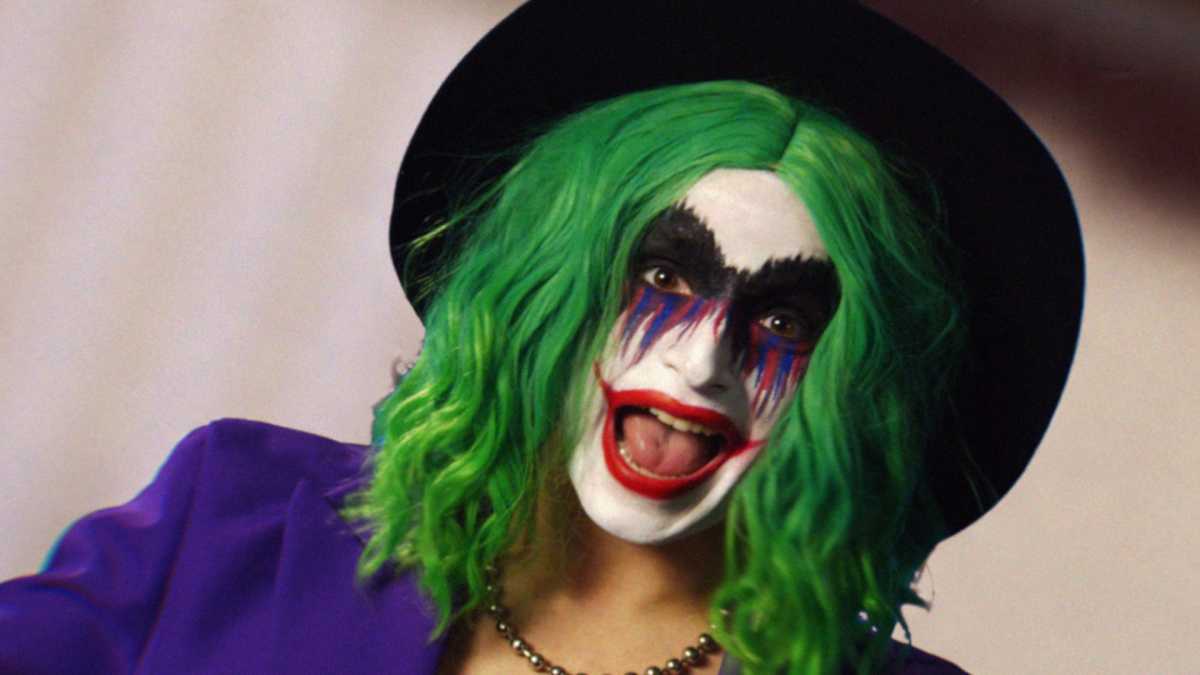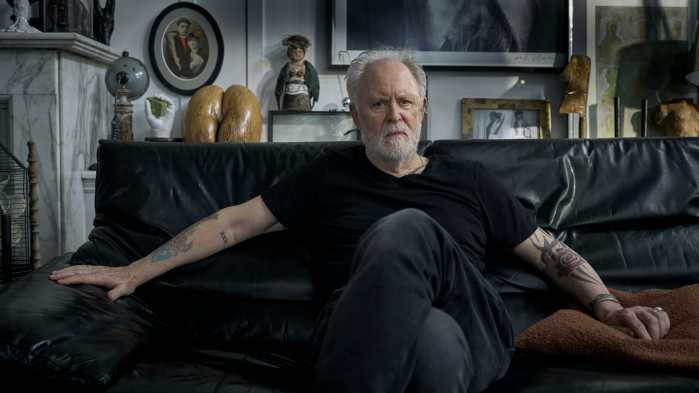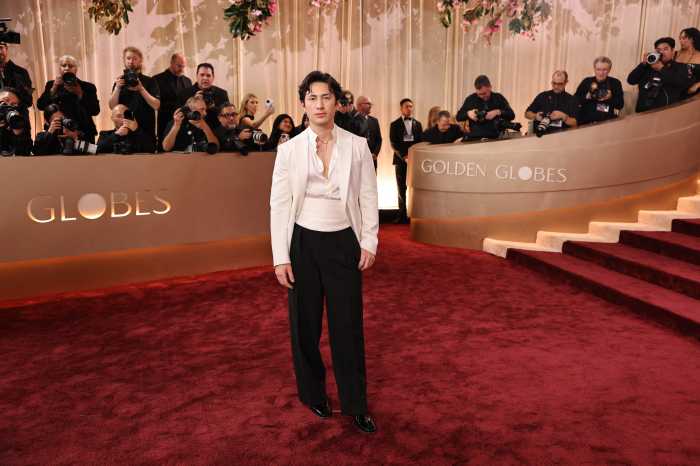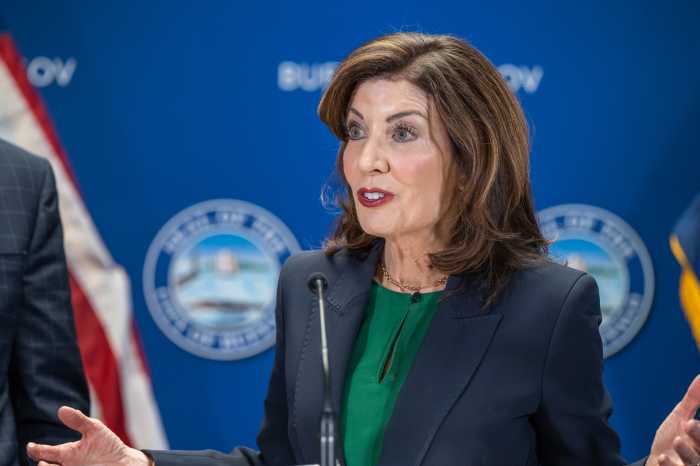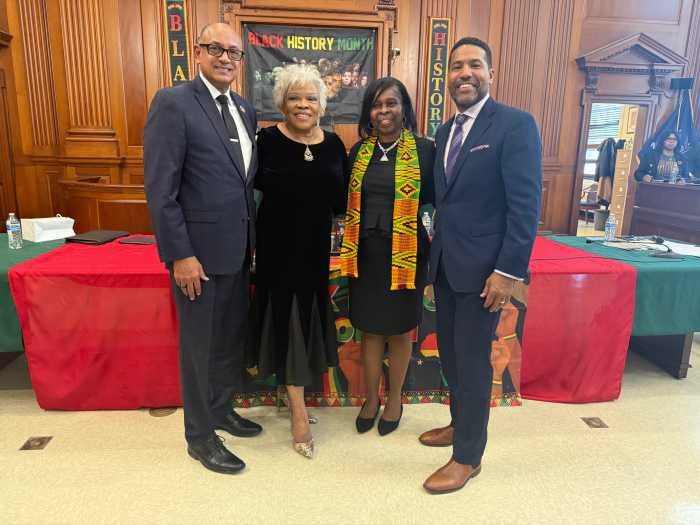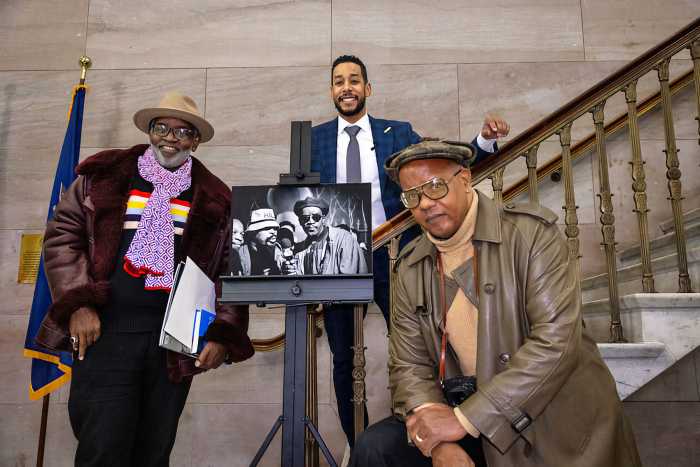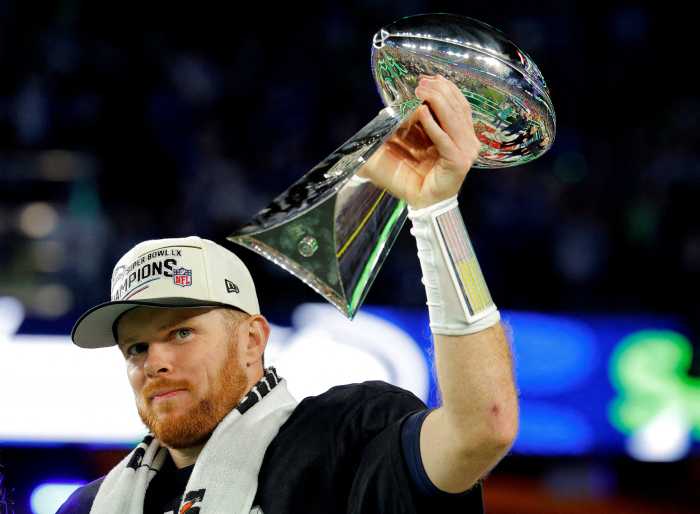Since the aborted premiere of “The People’s Joker” at the 2022 Toronto Film Festival, where Warner Bros. had it pulled after a midnight screening, it’s been a legend more than a film. A year and a half later, trans director Vera Drew’s riff on the mythologies of Harley Quinn, the Joker, and Bruce Wayne finally arrives on New York screens. In the absence of the film itself, it was easy to imagine a wild, outrageous satire that spat on corporate IP irreverently enough to anger the suits. To a large degree, that’s indeed what “The People’s Joker” is. It’s also a disarmingly heartfelt and optimistic autobiographical narrative from Drew.
Growing up in a small Midwestern town, Joker (Drew) is taken to Arkham Asylum by her mother (Lynn Downey) to have her gender dysphoria treated. A doctor prescribes her an anti-depressant, Smylez, which triggers wild hallucinations and a false sense of well-being. She moves to Gotham City, an authoritarian regime where comedy is controlled by one company. (So is almost everything else.) Joining an “anti-comedy” club, she falls in love with Mr. J (Kane Distler) when she sees him onstage. A troubled trans man, he becomes emotionally abusive, yet Joker needs time to see through her romanticization of him. She finds a real community in this theater, even though her talent as a comic is questionable. Those friends help her take down Bruce Wayne, leading to an opportunity to host the TV show “UCB Live.”
The power of corporate media to stamp its fingerprints on our imaginations goes hand in hand with its ability to shut down criticism. The queer undertones of “Batman” have been discussed since the 1950s, and they were subtext on the ‘60s TV series. “The People’s Joker” riffs on the homoeroticism of the Batman/Robin in a particularly dark manner. Its Bruce Wayne gets away with pedophilia thanks to his wealth. Drew’s film casts him to the sidelines and puts the weirder, campier characters on the edges of the Batman mythos at its center. Its attitude towards those films and TV shows is affectionate, if critical. Joker has her first realization that she’s actually a woman while watching gay director Joel Schumacher’s much-ridiculed “Batman Forever” as a child and identifying with Nicole Kidman. It’s not even a critique of Todd Philipps’ “Joker,” from which it lifts some of its narrative and several key images. Drew has said that she likes his film, but “The People’s Joker” visualizes alienation and ambition coming from a much less macho place.
The real anger of “The People’s Joker” is directed at people and institutions who’ve gatekept comedy while making phony promises about its subversive potential. “UCB Live” mashes together the Upright Citizens Brigade and “Saturday Night Live.” UCB’s comedy training classes get called out as a sexist pyramid scheme, just as they have in real life. Joker is accepted into them because she has a penis, without having to demonstrate her act. “SNL” producer Lorne Michaels gets called out by name at much greater length. Since the mid ‘70s, he’s had the power to act as kingmaker over future stars of American comedy, and he’s abused it (as documented in Seth Simons’ Humorism newsletter) while contributing to Donald Trump and Elon Musk’s star power.
The mixture of an unhinged visual style with sincere autobiography creates an odd jumble of tones. But Drew triumphs with the former. The film’s production design is wildly imaginative, using animation and green screen to create a world Drew didn’t have the budget to film. Few sets are real. Joker travels to the fifth dimension and rides on a puppet. It glows bright purple. Hollywood’s CGI tends to look cheaper and uglier the more expensive it is, while the no-budget homemade look of “The People’s Joker” is far more expressive.
Drew’s not a complete outsider. Having worked as an editor, director, and writer on several Tim Heidecker projects (as well as Sacha Baron Cohen’s “Who Is America?”), she was able to get Heidecker to voice a ranting TV host who sounds exactly like Alex Jones. Yet a studio or streaming service would never finance a film like “The People’s Joker.” Its media critique demonstrates how corporate IP’s dominance only makes room for diversity on its own narrow terms. “The People’s Joker” remixes pop culture into something personal, made by individuals rather than huge companies. Even its sillier moments are pointed: can’t get a cameo from “Batman” actor Robert Wuhl? Pay for him to make an appearance through Cameo!
“The People’s Joker” isn’t nearly as ironic as it appears. Its belief that comedy can be a means of cutting through bigotry to get to a greater truth, despite all the BS spouted by figures like Joe Rogan, shines through all the jokes.
“The People’s Joker” | Directed by Vera Drew | Altered Innocence | Opens April 5th at IFC Center

